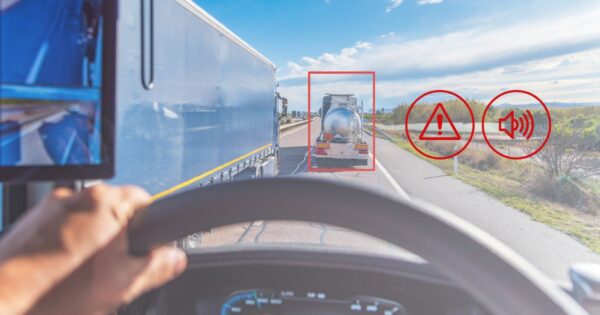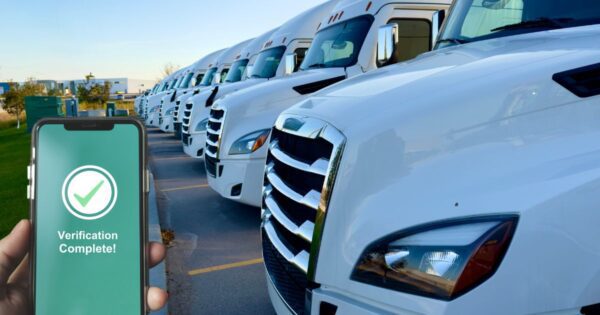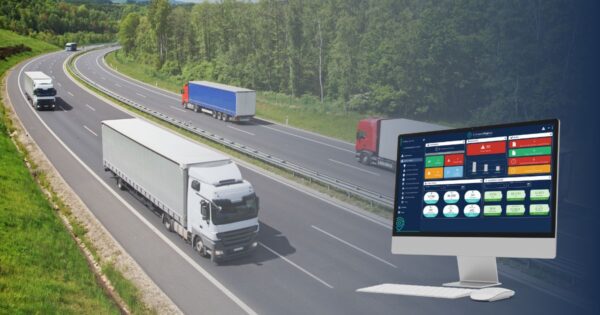Strategic camera placement in commercial vehicles is crucial for fleet managers facing unique challenges. From the construction industry to emergency services and everything in-between, having the right camera setups is key to preventing accidents, cutting costs, and boosting overall efficiency.
The importance of camera placement
Modern commercial vehicles rely heavily on camera systems. They provide real-time data that can significantly improve operations, driver behaviour, and most importantly, accident prevention.
When cameras are positioned correctly, they cover all angles, address blind spots, monitor driver behavior, and help with navigating tight spaces. Plus, they can exonerate drivers and protect against fraudulent claims with clear video footage of the incidents.
However, not all fleets are conventional, and not all camera providers are equipped to handle the diverse vehicles found in sectors like construction, utilities, and transportation.
That’s where CameraMatics comes in. Our systems are adaptable and extensible, with up to eight cameras available for any vehicle, no matter the type or configuration.
Driver monitoring cameras: Enhancing driver safety
One of the most significant advancements in vehicle safety is Driver Monitoring Systems (DMS). These cameras are positioned inside the vehicle to focus on the driver, continuously analyzing their behavior and physical state for signs of fatigue, distraction, mobile phone use, or smoking.
Did you know fatigue contributes to about 10-20% of accidents? And distractions, like using a mobile phone, are involved in 80% of road accidents. DMS help by sending instant audio alerts to the driver when these issues are detected, reminding them to focus their attention on the road.
This proactive approach not only reduces the risk of accidents but also promotes safer driving practices and ensures compliance with company policies and road safety regulations.
Adapting camera systems to diverse fleets
Construction vehicles: Navigating tight spaces with limited visibility
Construction vehicles like bulldozers and excavators operate in environments with limited visibility and numerous blind spots. Proper camera placement is crucial for preventing accidents and ensuring safety. By installing cameras in key locations, operators gain a clear view of their surroundings, enhancing their ability to maneuver in confined spaces and reducing the risk of accidents on-site.
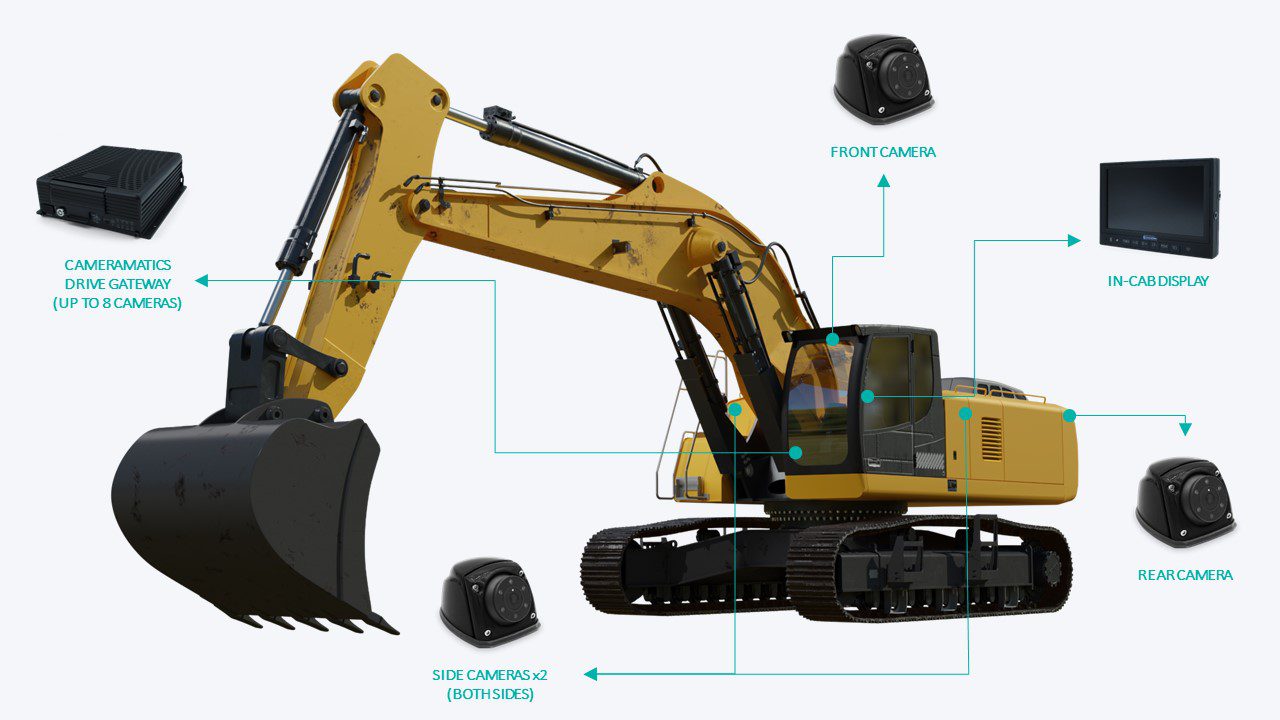
Trucks – enhancing long haul safety
For trucks, especially those involved in long-haul transport, blind spot cameras are essential. These cameras cover the areas that drivers can’t see through traditional mirrors, like the sides and rear of the trailer. This significantly reduces the risk of accidents caused by blind spots, such as side-swiping during lane changes or turns. Rearview cameras also help drivers when reversing in crowded areas or into tight loading bays.
Intelligent Driver Assistant Systems (i-DAS) provide an extra layer of safety by enhancing a driver’s reaction time and preventing accidents. Features like blind spot detection, AI-powered pedestrian and cyclist detection, and advanced Moving Off Information System (MOIS) work together to create a safer driving environment.
To combat driver fatigue and distraction, Driver Monitoring Systems are crucial for long-haul journeys. By identifying potential issues early, these systems can alert drivers before accidents occur.
Cargo cameras, mounted on trailers or containers, offer multiple benefits. They provide a real-time view of the cargo, deterring theft, while also monitoring the loading and unloading process, identifying any potential damage or discrepancies.
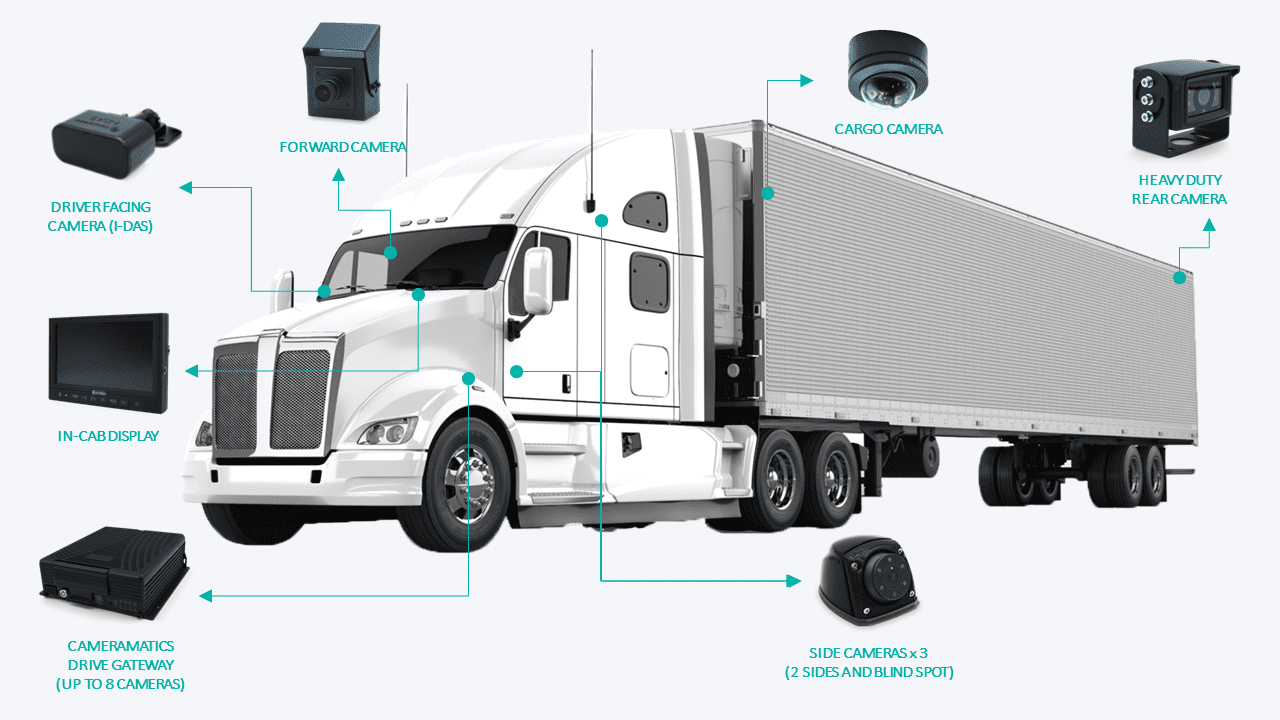
Delivery vans – maneuvering urban environments
Delivery vans often navigate narrow streets and congested urban areas. Front and rear, cameras assist drivers in parking accurately, avoiding vulnerable road users, and preventing collisions with other vehicles.
Our Genie Pro dashcam is the perfect solution for delivery vans. It provides best-in-class driver monitoring, plus up to two additional cameras to give you vision exactly where you need it. It is quick and easy to install and unlike other dashcams, it’s easy to adapt to suit your needs. Want to move the driver-facing camera to a less obtrusive spot, or remove it altogether? No problem.
One of the additional camera’s mentioned above could be used to protect your cargo. Cargo cameras aren’t just for long-haul trucks. They are equally beneficial for delivery vans helping to prevent theft, discourage opportunistic crimes, and ensure that goods are handled properly during transit.
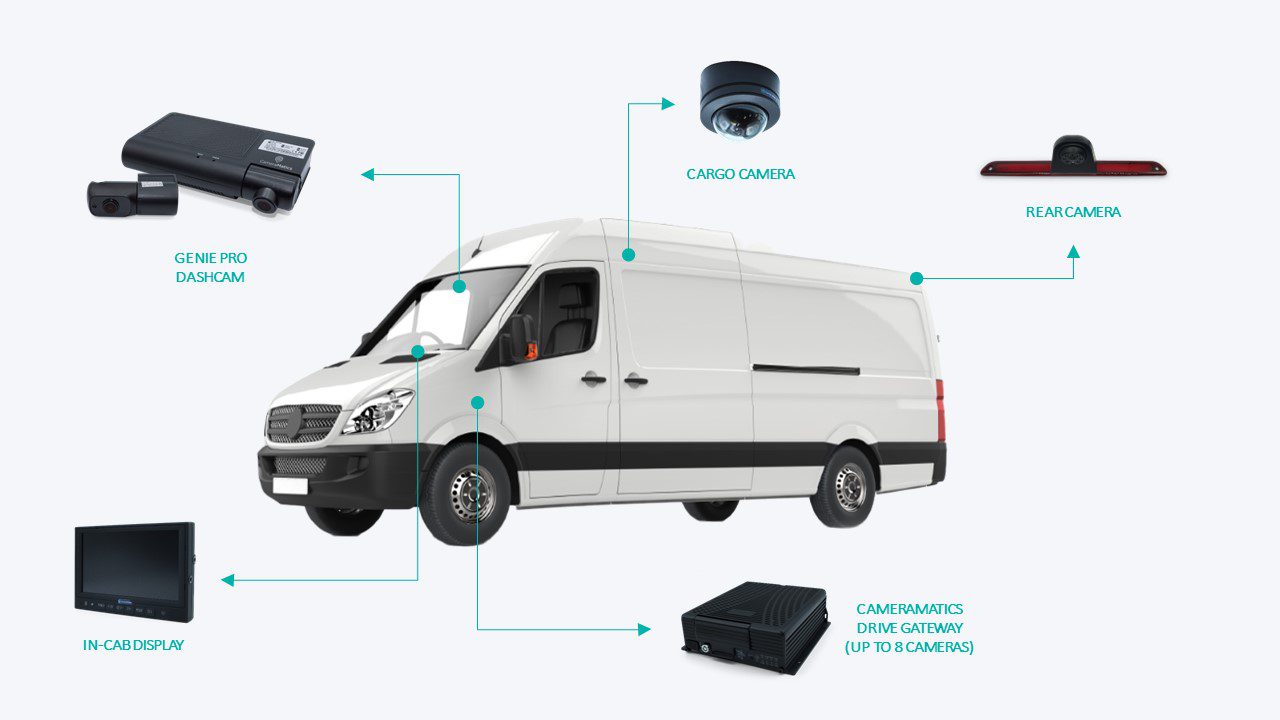
Passenger transit – ensuring passenger safety
Passenger safety is paramount for buses. Camera systems help to keep the passengers, and their property safe.
External cameras give drivers better visibility of their surroundings, making it easier to drive safely, avoid accidents and help passengers get on and off the bus. They also keep an eye on luggage to help prevent lost or stolen items.
Internally, cameras are used to deter anti-social behavior and vandalism, monitor passenger behavior and provide clear evidence of any incidents or disputes if required. This helps to create a safe environment for everyone, enhancing the overall experience.
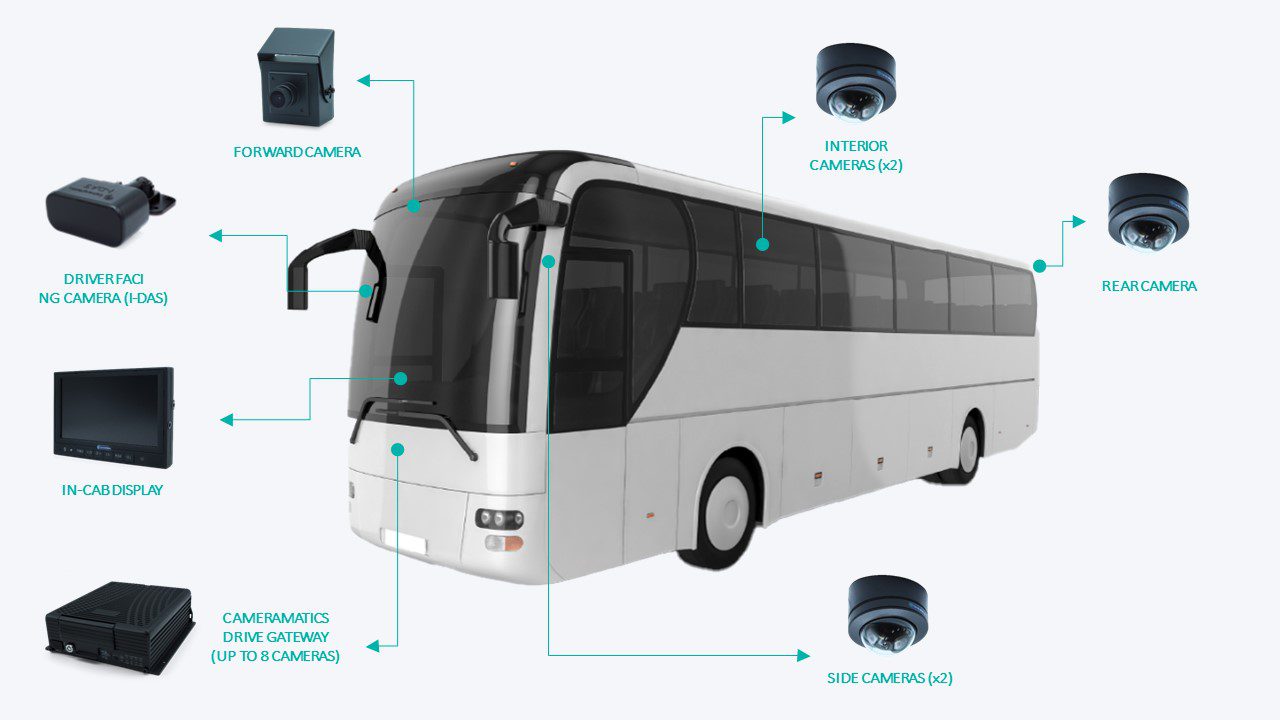
Emergency vehicles – keeping our first responders safe
For emergency vehicles like ambulances and fire trucks, every second counts.
Our camera systems provide clear visibility from all angles, allowing drivers to maneuver safely through often-chaotic traffic conditions.
In the event of an accident, the comprehensive footage captured serves as invaluable evidence, accurately capturing incident details and protecting emergency responders from false accusations.
Whether it’s an ambulance rushing to save a life, a fire truck battling a blaze, or a police vehicle responding to an emergency our cameras continuously monitor the vehicle 24/7, capturing every incident inside and out. This is especially helpful in high-stress emergency situations, providing crucial evidence to protect first responders.
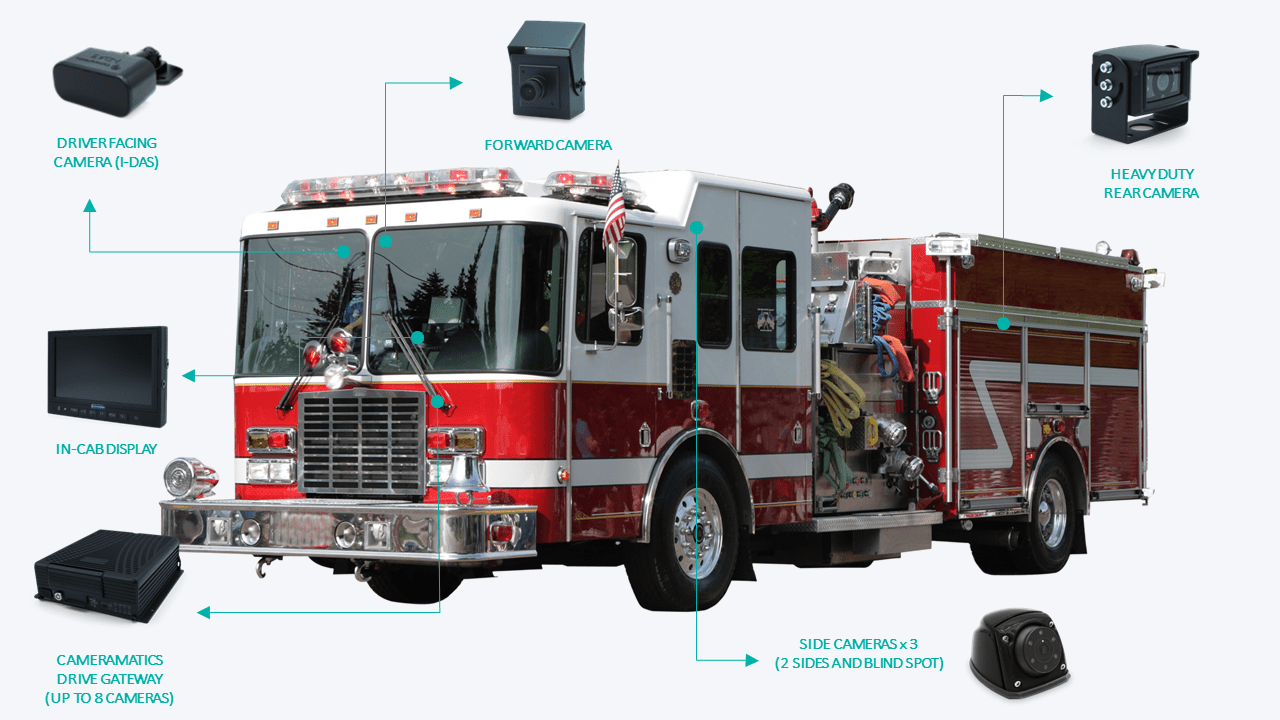
Utility and gas vehicles – operating in hazardous environments
Utility and gas vehicles often operate in hazardous environments. Cameras mounted on these vehicles help drivers navigate safely around obstacles and monitor their surroundings for potential hazards. This is especially important when working in tight spaces or near high-risk areas such as gas pipelines.
Cameras positioned near outlets ensure deliveries go smoothly and detect any oil or gas leaks. Our vehicle safety technology is designed to be intrinsically safe and suitable for use in high-risk environments, removing the risk of sparking.
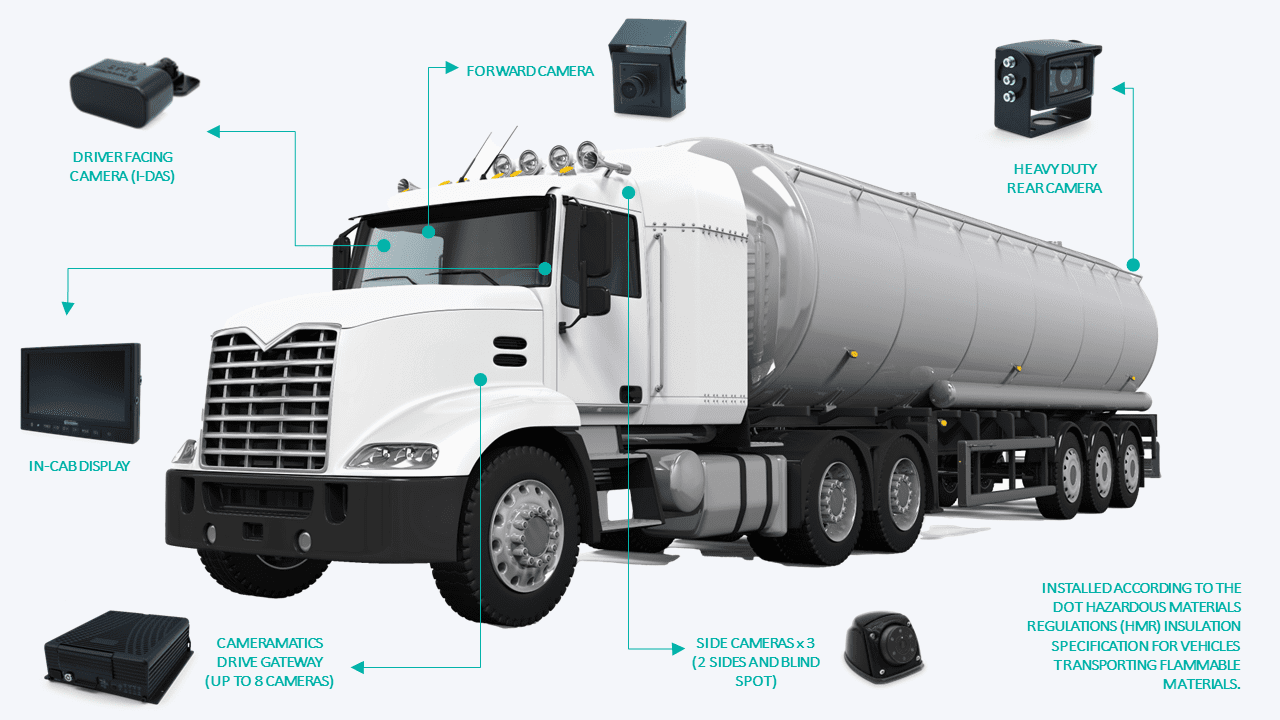
Recovery service trucks – enhancing safety on busy roads
Recovery service trucks frequently operate on busy roads and highways, where visibility and safety are critical. 360° visibility could be life-saving in this situation. By detecting approaching traffic during roadside operations, these cameras significantly reduce the risk of accidents.
When recovering vehicles, rear-facing and winch-mounted cameras offer unparalleled visibility, ensuring safe and efficient recovery procedures while also exonerating the recovery staff from any false claims of damage.
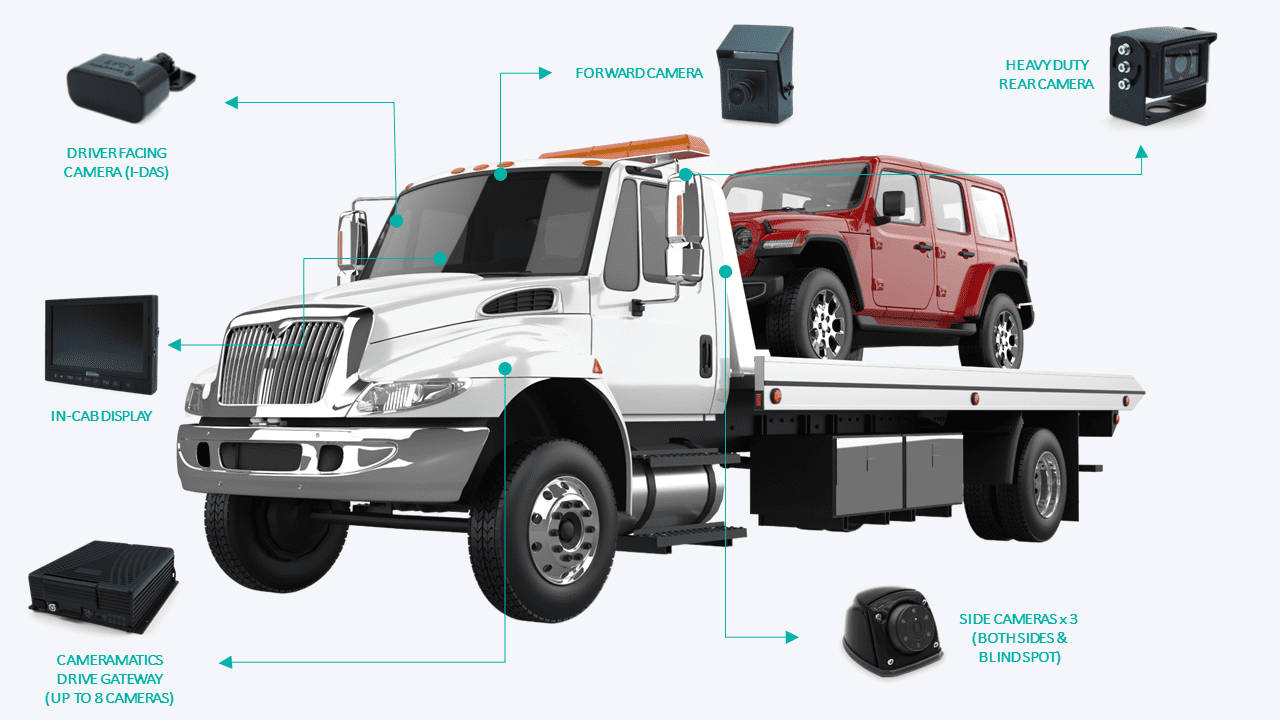
Summing it up
Optimizing camera placement across different vehicle types is essential for improving safety, efficiency, and operational effectiveness. By addressing the specific challenges faced by each vehicle category – from construction equipment to emergency services – strategically placed cameras provide invaluable assistance to drivers.
As technology continues to evolve, sophisticated camera systems will play an increasingly vital role in shaping the future of vehicle safety and operational efficiency.


